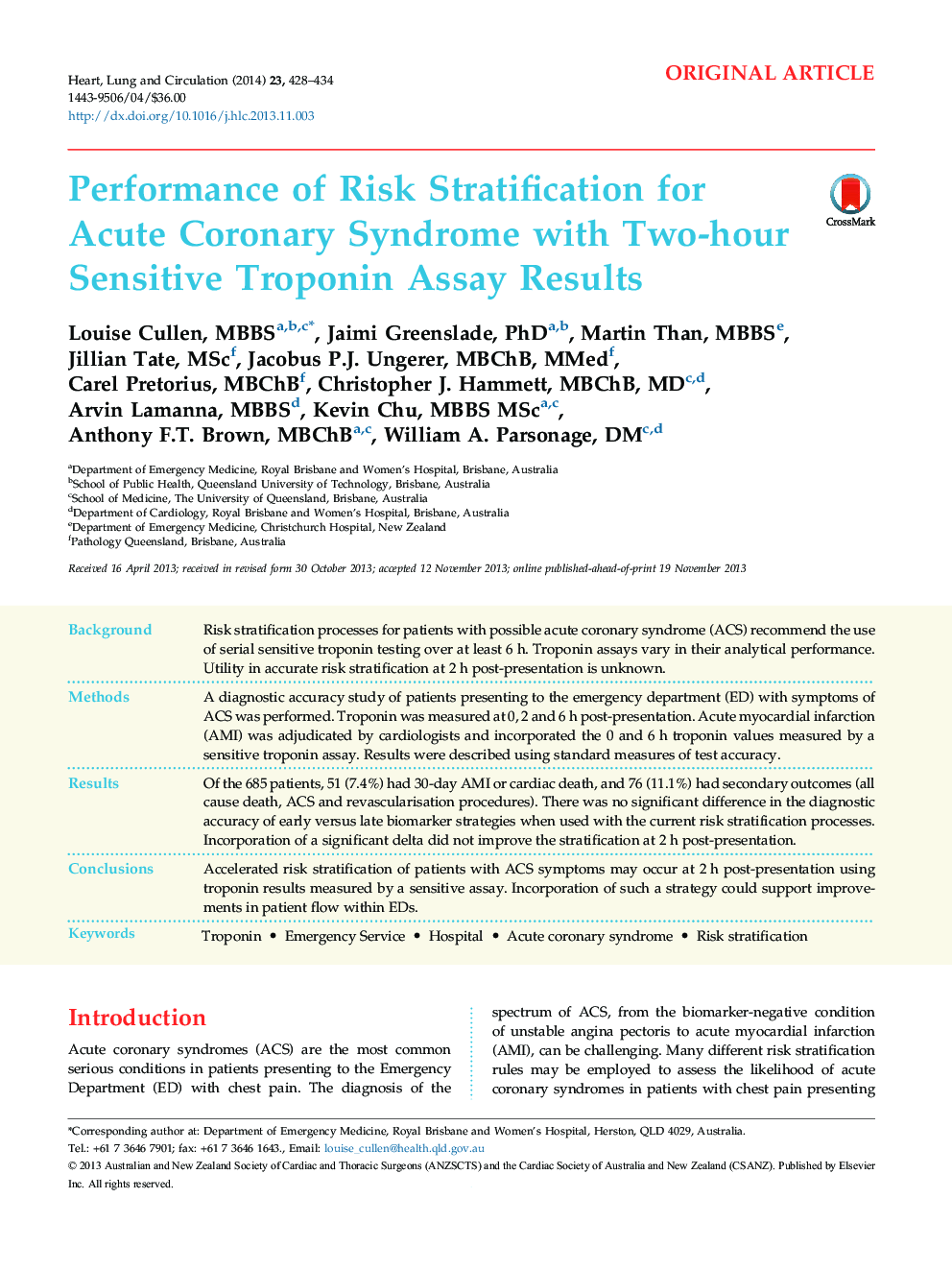| Article ID | Journal | Published Year | Pages | File Type |
|---|---|---|---|---|
| 2918216 | Heart, Lung and Circulation | 2014 | 7 Pages |
BackgroundRisk stratification processes for patients with possible acute coronary syndrome (ACS) recommend the use of serial sensitive troponin testing over at least 6 h. Troponin assays vary in their analytical performance. Utility in accurate risk stratification at 2 h post-presentation is unknown.MethodsA diagnostic accuracy study of patients presenting to the emergency department (ED) with symptoms of ACS was performed. Troponin was measured at 0, 2 and 6 h post-presentation. Acute myocardial infarction (AMI) was adjudicated by cardiologists and incorporated the 0 and 6 h troponin values measured by a sensitive troponin assay. Results were described using standard measures of test accuracy.ResultsOf the 685 patients, 51 (7.4%) had 30-day AMI or cardiac death, and 76 (11.1%) had secondary outcomes (all cause death, ACS and revascularisation procedures). There was no significant difference in the diagnostic accuracy of early versus late biomarker strategies when used with the current risk stratification processes. Incorporation of a significant delta did not improve the stratification at 2 h post-presentation.ConclusionsAccelerated risk stratification of patients with ACS symptoms may occur at 2 h post-presentation using troponin results measured by a sensitive assay. Incorporation of such a strategy could support improvements in patient flow within EDs.
